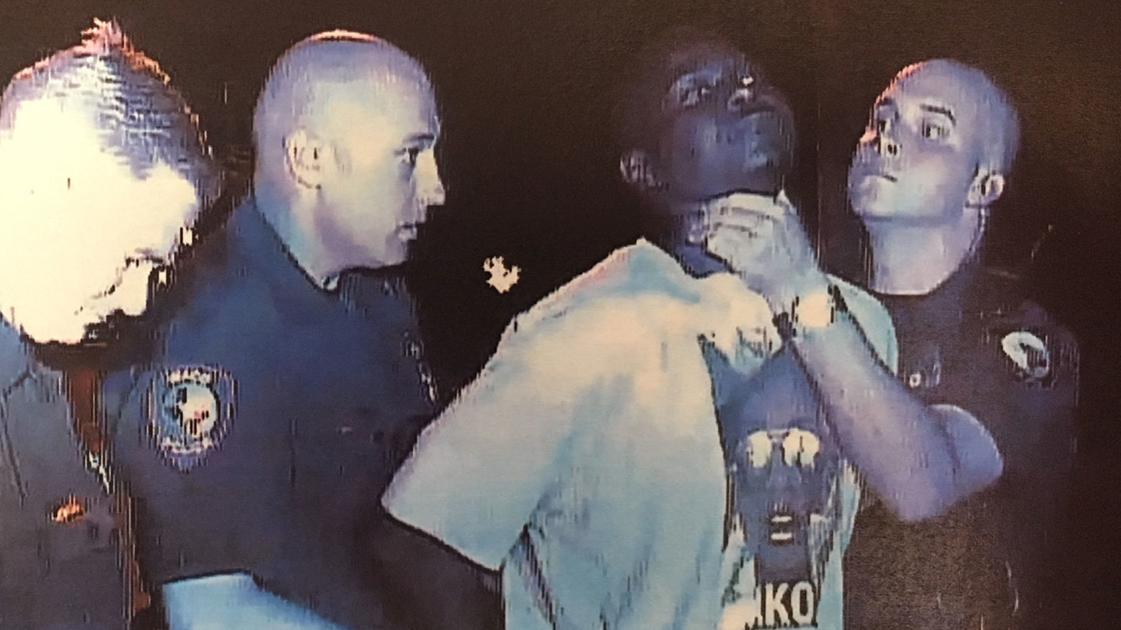If A Cop is Choking Someone with Possibility of a George Floyd Case, Can You Help That Victim?
 |
| In this image taken from a Waco police dash camera video, George Neville is seen with his hand on Qualon Weaver’s neck.THe cop was convicted two cases of Assault. The cop's name is George Neville. |
This is a dangerous subject in most places. In New York let's say, I think you will be arrested and probably assaulted if you physically interfere. But making it clear you are taping and yelling to the cop they are killing the person might get you an arrest at the worse. This Software Engineer {Carrie Cutler} has an idea and it was posted. I invite anyone to address this issue here on the site.
If a cop was choking someone like what happened to George Floyd, what can I do to stop them? How can I help the person being choked?
About eight years ago, I was walking home from class in the evening. I like to people watch while I walk, for safety and just because. Across the small street from me, a man on a bicycle rounded the corner, legs pumping hard, head swiveling to look over his shoulder, apparently afraid of something. I stopped and turned, trying to figure out what he was looking at.
A university police car rounded the corner, hopped the curb, and caught up to the bicycle, slamming into it and sending the man flying as the bicycle ended up underneath the police cruiser. The man landed on his shoulder, breaking it so clearly I could see it across the street. He started screaming as the university police barrelled out of their cruiser. They grabbed his arms, wrenching them behind him and setting off a fresh wave of screaming.
I’m not a good bystander, and I recognize the unnecessary use of force when I see it, so I whipped my cell phone out and called 911.
As I called, they kept hauling back on his shoulders, roughly putting him into handcuffs with an apparently broken shoulder. I described all this to the operator, at this point putting down my backpack and giving the incident all my attention. The university cops were not calling anyone to come help, just manhandling the screaming man, who was begging them or anyone else to please call an ambulance.
After a few minutes of this, an ambulance rolled up. Both cops were apparently surprised—again, this was across a small street, so I could see their expressions. They hadn’t called an ambulance. They shooed the ambulance away. A city police car rolled up shortly after, and one of the university cops talked for a little while to the city police, who told them I had called. Then the city cops got out of the car, and one of the university cops and the city cop stood across the street from me.
We stared at each other for a moment. I still had my phone in my hand. They folded their arms. The man on the ground cried.
People passed me, refusing to make eye contact, heading to their cars or home, as I was, from class. I tried to talk to people. They avoided me.
A friend walked by—an older man, originally from Iran who had emigrated to the US in the 1980s. On seeing the situation, he grabbed me by the arm, scooping up my backpack.
“You can’t,” he hissed. “You can’t do that.”
When he had gotten me safely away from the two cops, whose eyes had followed me, he shook me.
“Do you love your children,” he said. “If you love your children, you can’t do that.”
He told me a story about the encounters of his friends with the university police, and some of the vindictive things they had done to people who filed complaints.
Then he told me a few stories from Iran, trying to scare me into understanding.
The irony has stuck with me—an Iranian man, from a country we consider to be significantly un-free, probably saved an American woman from something nasty, in a country we consider to be free.
To answer your question, unless everyone around you is willing to do something, no one will do anything, and if you do something, you will paint a target on your back.
I suspect, however, that this is changing.
It’s about fucking time.
62.1K views
View Upvoters
View Sharers
Comments